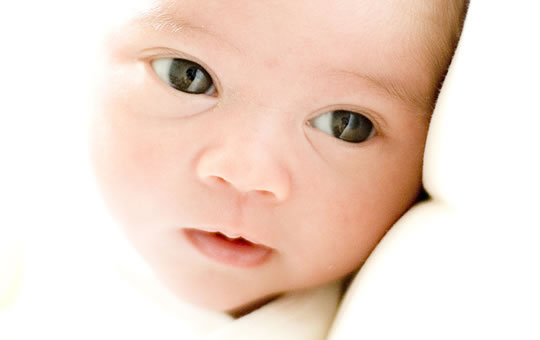What Are Babies Watching?

What do babies really
understand about the world?
The first study for your
consideration in the top ten psychology studies is by Robert Fantz, a
developmental psychologist, and it is deceptively simple. Like many of us
staring at young babies, Fantz wondered how much they understand about the
world.
The eyes of tiny infants look
glazed and they mostly seem concerned with the bare necessities of life. What
do they understand about the world and how can you possibly find out, given
that babies are not so hot on answering complex questions about their
perceptual abilities?
In 1961, when Fantz carried
out his experiment, there wasn’t much you could do to find out what was going
on in a baby’s head – other than watch. And watching the baby is what he did.
An enduring feature of human
nature is if there’s something of interest near us, we generally look at it. So
Fantz set up a display board above the baby to which were attached two pictures
(Fantz, 1961). On one was a bulls-eye and on the other was the sketch of a human
face. Then, from behind the board, invisible to the baby, he peeked through a
hole to watch what the baby looked at.
The results
“…a two-month old baby looked twice as much at the human face as it did at the bulls-eye.”What he found was that a two-month old baby looked twice as much at the human face as it did at the bulls-eye. This suggested that human babies have some powers of pattern and form selection. Before this it was thought that babies looked out onto a chaotic world of which they could make little sense.
In modern psychology the
descendents of this experiment are still used today to find out what babies
understand about the world. These have discovered that we’re remarkably early
developers. At one month we can follow a slow-moving object. At two months we
can move both our eyes together and begin to appreciate how far away things
are. At three months we can tell the difference between members of our family
(Hunt, 1993).
As a result of these and
similar studies, psychologists have suggested that we are born with a definite
preference for viewing human faces. This would certainly make evolutionary
sense as other human faces hold all sorts of useful information which is vital
for our survival.
Not a bad set of conclusions
from simply watching a baby’s eyes! So Robert Fantz is the first nomination for
the top ten studies in psychology.
About the author
Psychologist, Jeremy Dean, PhD is the founder and author of PsyBlog. He holds a doctorate in psychology from University College London and two other advanced degrees in psychology.
He has been writing about
scientific research on PsyBlog since 2004. He is also the author of the book
“Making Habits, Breaking Habits” (Da Capo, 2003) and several ebooks.
SOURCE: PSYBLOG
SOURCE: PSYBLOG
Comments
Post a Comment